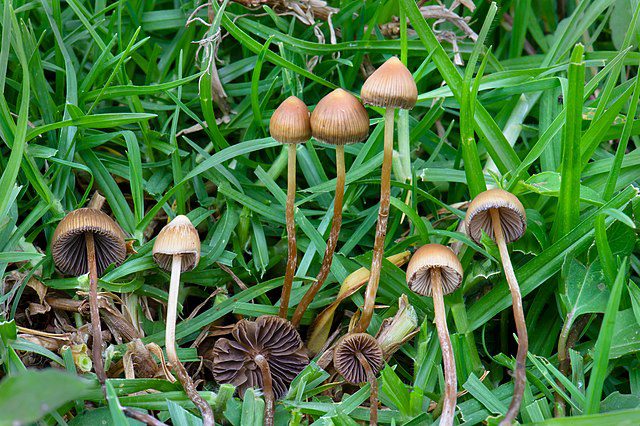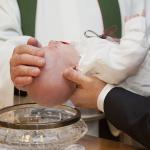Many secularists are starting to believe in God. Not because they have been evangelized (though some have been). Not because of a new apologetic argument (though some are being persuaded). But because they are taking psychedelic mushrooms, one of whose properties is to create religious experiences.
Rolling Stone has published an article by Cassady Rosenblum entitled People Are Trying Magic Mushrooms for Depression — and Accidentally Meeting God, with the deck “The medicalization movement is faltering. Maybe that’s because psychedelics have been spiritual tools all along.”
In the article we hear from a number of people who took “magic mushrooms” (psilocybin) or ayahuasca (a drink made from a South American vine) as a way to deal with mental health issues. Instead, they reported an overwhelming experience of God, a divine being who underlies all of reality.
These are not isolated cases. According to the article, a large majority of the users of these drugs cite some kind of transformative spiritual encounter.
I came across a separate large-scale study from Johns Hopkins in 2019 that found that 2/3 of atheists who took psychedelic drugs now say that they believe in God. A report on that research–which included other psychedelics such as LSD and which compared drug-induced mystical experiences to mystical experiences without drugs–listed these findings:
- About 75 percent of respondents in both the non-drug and psychedelics groups rated their “God encounter” experience as among the most meaningful and spiritually significant in their lifetime, and both groups attributed to it positive changes in life satisfaction, purpose and meaning.
- Independent of psychedelics use, more than two-thirds of those who said they were atheists before the experience no longer identified as such afterward.
- Most participants, in both the non-drug and psychedelics groups, reported vivid memories of the encounter experience, which frequently involved communication with some entity having the attributes of consciousness (approximately 70 percent), benevolence (approximately 75 percent), intelligence (approximately 80 percent), sacredness (approximately 75 percent) and eternal existence (approximately 70 percent).
- Although both groups reported a decreased fear of death, 70 percent of participants in the psychedelics group reported this change, compared with 57 percent among non-drug respondents.
The Rolling Stone article reports on how the case for legalizing “magic mushrooms” and the like has been based on medical claims, even though their real effect seems to be “spiritual.” (The drugs are legal in Oregon and Colorado, with various cities across the country “decriminalizing” them by refusing to prosecute possession. Other jurisdictions are considering doing the same.
The drugs’ growing popularity has led to psychedelic tourism, especially to South America. Indigenous cultures in the Americas have long used mushrooms, ayahuasca, and peyote (a cactus) in their religious rites. So it should not be surprising that they are catalysts for “religious experiences.”
So what are Christians to make of this? Do the psychedelic plants blow apart the conscious mind so that a glimpse of the ever-present God can break through? Or does this suggest that “religious experience” is nothing more than a mental phenomenon that can be induced by naturalistic means?
Should Christians support efforts to legalize these drugs as a way to reduce atheism? Might they have a place in an evangelism program? Short answer: NO!
Contrary to a common assumption even among Christians, Christianity is not a function of religious experience. We might have religious experiences, but those are not the same thing as faith in Christ.
And the deity experienced in drug-induced mystical euphoria cannot be assumed to be the God revealed in His Word. The Rolling Stone article tells of people abandoning their “organized religion” after experiencing this “reality.” This deity is described as “the God within” or as a New-Age pantheistic god consisting of the unity of all things.
Have any of you heard about any of these former-atheists whose drug-induced encounter with the divine led them to Christianity? If not, that is telling. If you have, I’d like to hear about it. I suspect, though, that this is a rarity.
The point is, believing in a god, or even experiencing god, does not take us very far. There is the true Triune God of the Bible. There are also a host of demonic counterfeits. To know God, don’t look inside yourself. Look outside of yourself, to the Word and the Sacraments. Human beings shouldn’t presume to turn themselves into God. Rather, they should turn to the God who turned Himself into a human being.
Photo: Psilocybe mexicana by Alan Rockefeller – Own work, CC BY-SA 4.0, https://commons.wikimedia.org/w/index.php?curid=80232011













